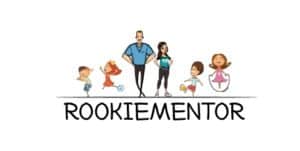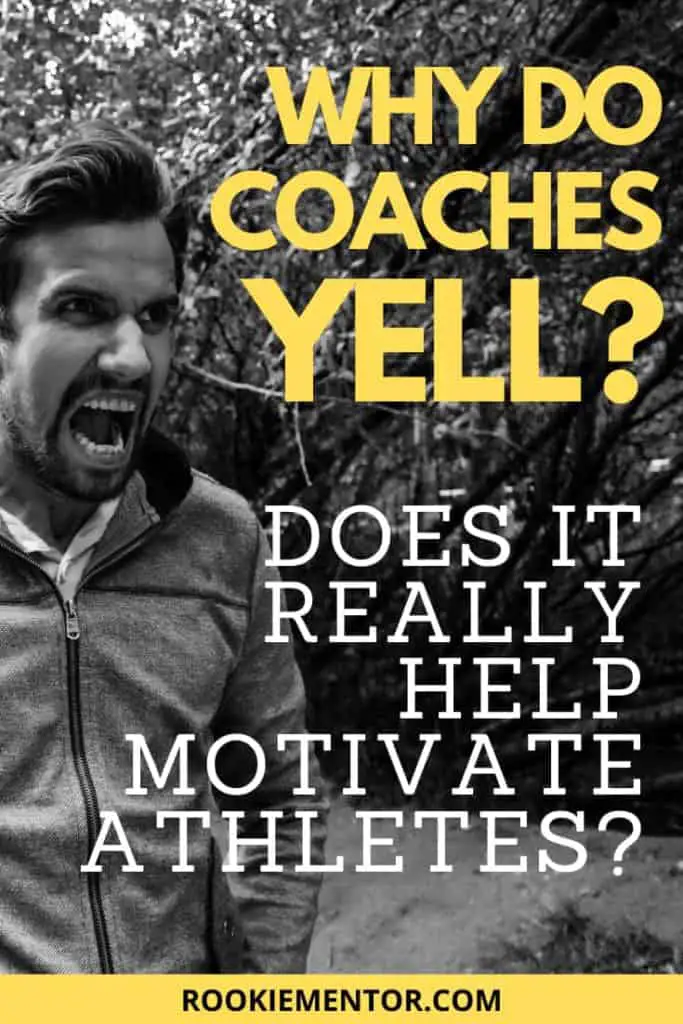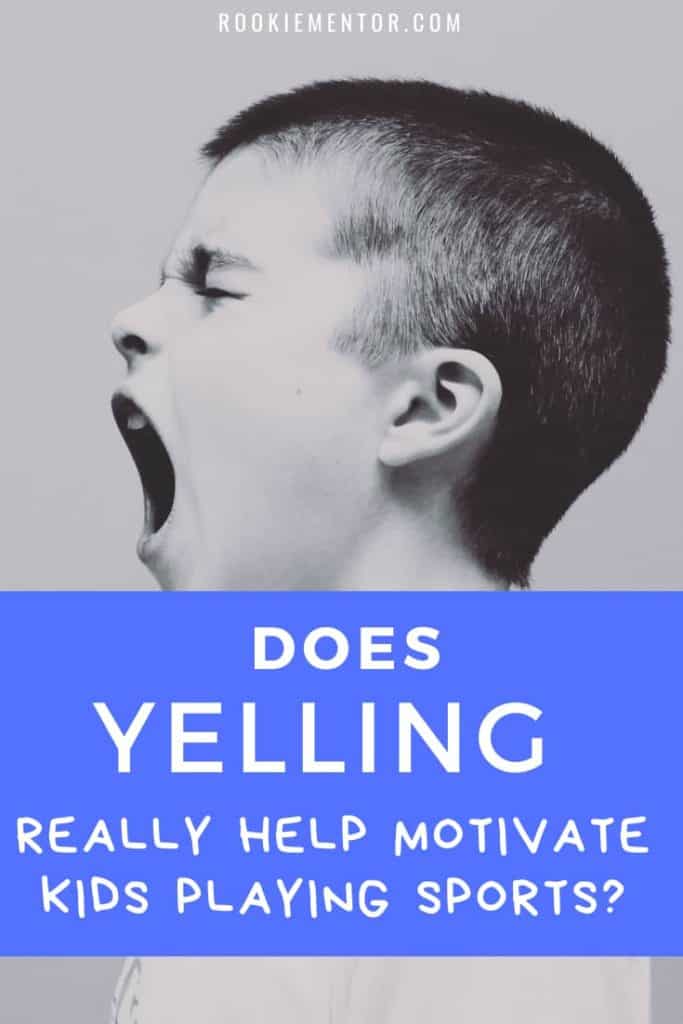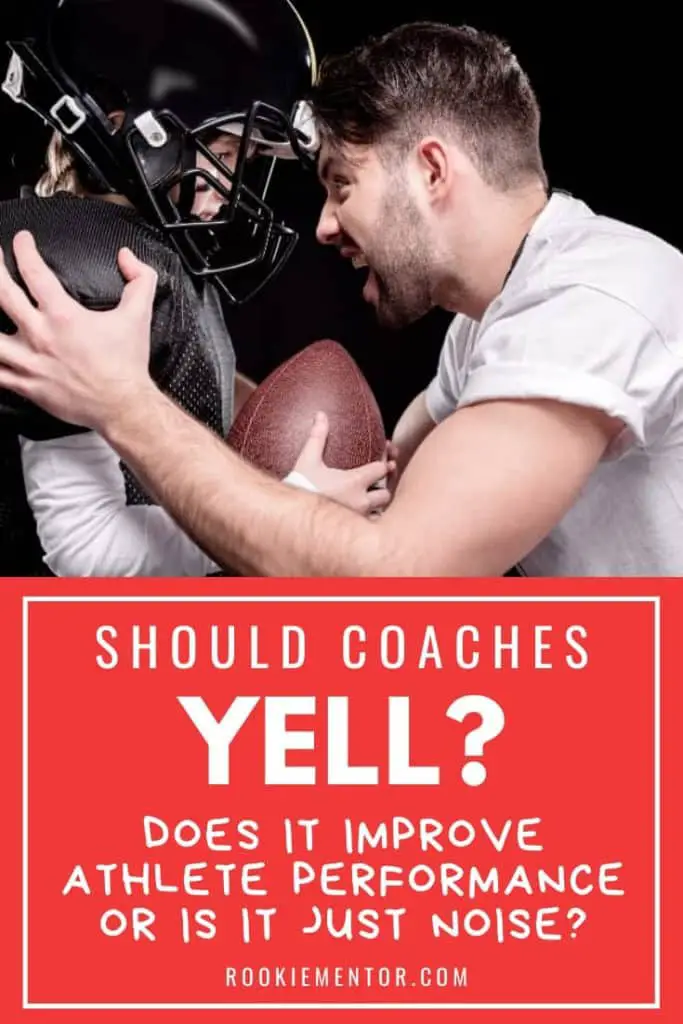When coaches would yell at me on the basketball court, I can honestly say, more times than not, it scared me rather than motivated me. I was afraid to take a shot and nervous to “go all-in” in case I made a mistake. But am I the minority? Does yelling work on some athletes? While it might help release tension, anger and frustration from a coaches perspective, does it help motivate and drive their team to success as intended?
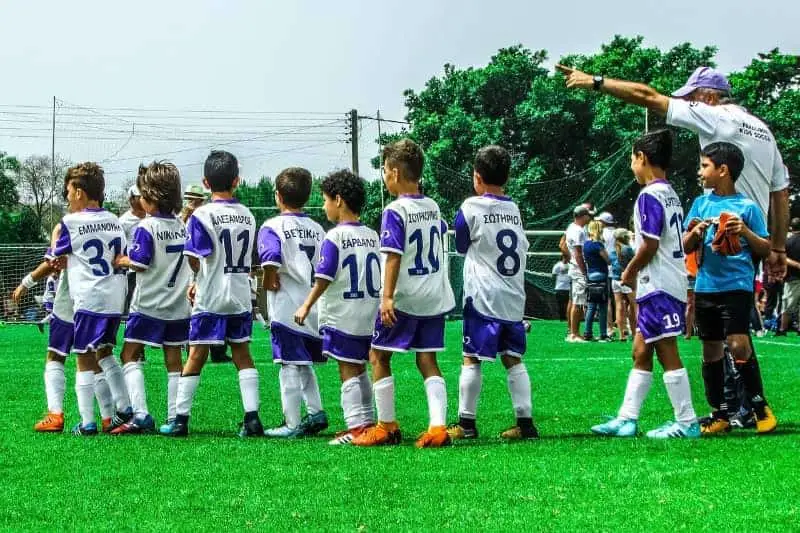
Generally, coaches yell out of frustration at players mistakes, referee decisions or distracting members of the crowd, whilst other coaches yell simply to be heard in a loud stadium environment. While some coaches deem it motivating and required for discipline, there are athletes who find it distracting, demeaning and unhelpful.
There is a fine line between aggressive, negative yelling which deflates and distracts athletes to the other kind of yeller who is passionate, tactful and just has a really loud voice.
This post explores why coaches yell, who they are actually yelling at and if it’s effective. I then conclude with some alternatives to yelling that are incredibly effective in motivating athletes over using scare tactics to increase performance.
Who Are Coaches Yelling At?
Firstly, it’s important to point out who and what coaches are actually yelling at. Does this excuse the behavior? No. But does it give the argument context? You bet.
Context is important because not every coach who yells is doing so to publicly shame and embarrass an athlete or official. Some just talk really loud or want to make their players answerable to their behavior and actions.
While most of this article discusses the player/coach relationship, it’s important to highlight that when coaches yell they become so emotionally invested in the game they can soon find themselves yelling at:
- Players (both on the court/field/arena and also on the bench for performance and behavior)
- Referee and umpires
- Parents and the crowd
- The coaching staff and club management
- Officials and the score bench
While yelling at someone socially is generally not tolerated, it seems the rules are different inside the sports arena. Is it right? Is too much yelling ever just too much? And ultimately, is it effective?
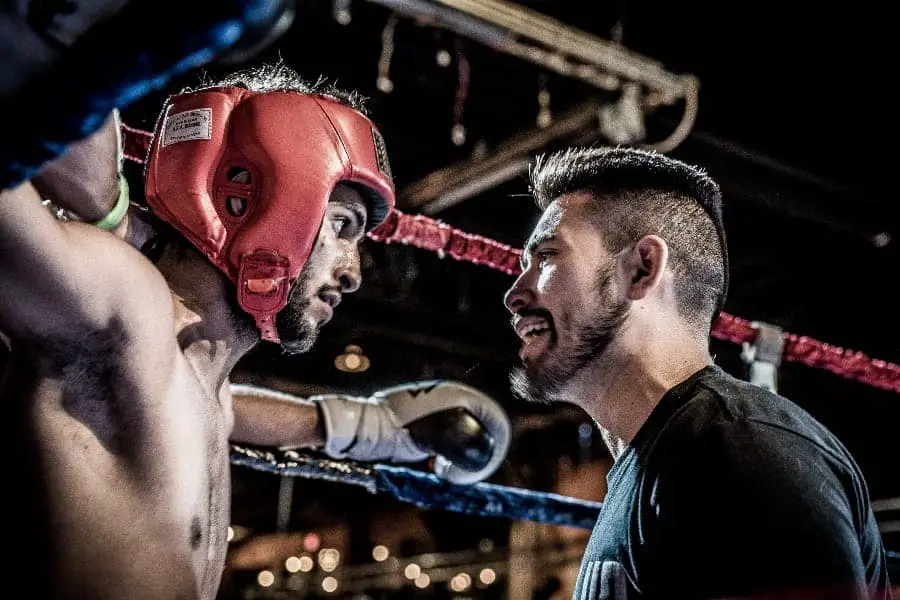
Why Do Sports Coaches Yell?
While no two coaches are the same, a coach who yells is probably doing so to get a reaction.
This reaction might be to motivate their athlete, to calm down a player or assistant coach who is extremely animated or to ask the referee a question over a boisterous crowd where they can’t hear themselves think.
As I mentioned, not all coaches who yell are shouting out negative, aggressive phrases to belittle the athlete in front of the team despite what may instantly come to mind when you think about yelling. Some coaches just have a really loud voice and have the ability to use sheer volume to their advantage.
Often these coaches don’t even know they are “yelling” until somebody, generally a wife or husband, points out the seemingly obvious observation after the game.
Some coaches yell to give athletes a boost of energy, hoping to relay their enthusiasm and passion from the sideline onto the playing surface.
And others yell because they’re angry and frustrated at the referee or umpire. Often the officials cop a verbal beating from coaches, not because of their seemingly “bad call,” well sometimes, but often it’s because their team is supposed to be winning and they are getting spanked.
“Yelling at referees rarely improves performance”
(source)
Other passionate coaches yell as a form of discipline when their players run to the wrong position or they show poor on-court behavior. It does seem a little contradictory to yell at somebody who has been behaving badly on the court, but you can be the judge.
Finally, some coaches yell to instill a form of mental toughness. I believe the thought is if you can tolerate constant yelling it prepares you for anything on court like your opponent talking-trash, a losing margin or a negative, unsupportive crowd.
But the majority of coaches who yell, or in their defense “talk really loud”, are not yelling out compliments like “great shot Michelle” or “Amazing defense, Mike. Way to hustle.” This is where the problem starts.
They are yelling often derogatory and critical statements that are supposed to motivate their athletes but instead it often does the opposite. The athlete wishes coach would just stop yelling so they can think and get to work.
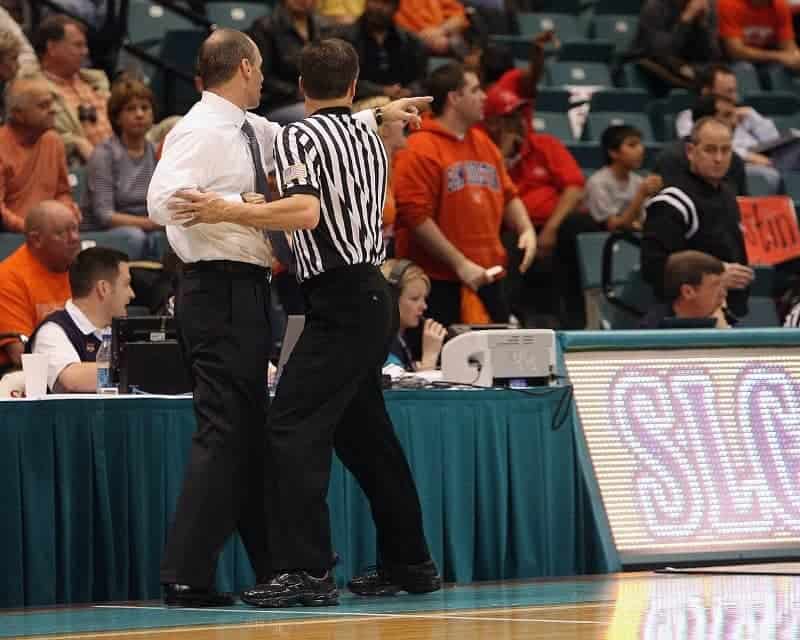
So it made me start to think a little wider. Why do coaches have to keep yelling? Did they not teach and prepare their team well enough?
Do Coaches Yell Because The Team Is Unprepared?
This idea came from watching this YouTube video about a high school volleyball coach who said that if he needs to keep yelling the same message over and over again he probably hasn’t done a good job teaching the skill.
He went on to say that, if he/she (the coach) is getting so upset with their team for not executing the play, they have not been a good coach. They obviously haven’t taught their team how to perform a particular play or execute a strategy under all conditions if they are constantly needing to repeat themselves. They have failed to help their team retain information and neglected to adequately prepare them.
Wow.
While this is only one coaches take on the matter, it’s insightful to think about why the yelling is happening in the first place.
Are you yelling about the same thing over and over?
Are you yelling at one particular player or is the entire team “not getting it”?
As coach, analyzing these two questions can radically change how you practice and the techniques used to convey a message.
Do you need to use more or less video? Do you need to listen to advice from your assistant coach? Do you need to involve your captain and hear their advice? Do you need to have a team meeting where your players do the talking, not you?
He goes on to say, “the ultimate level of a coach is when you can have a self-running machine. You’ve prepared your players so well that you are there just to oversee the process not to direct it.”
This would sure make for a quieter stadium.
Is A Yelling Coach Effective?
For some players, such as Gordon in the movie Dodge Ball, he needed “to get angry!” in order to peak his physical performance when the game was on the line. Play the clip below to remind yourself if you need.
Some players need this high energy, passion and volume to get their butt into gear and work hard. They need this kind of vocal boost to keep them accountable so they don’t slack off. Some of these players may even think that when a coach stops yelling at them they stop caring, making them feel even worse, further complicating the issue.
You may remember an incident with coach Tom Izzo earlier in 2019, where he spoke very forcibly to his player on the court and it didn’t look good. This was a very polarizing event where a coach was making his player accountable for his actions, or lack of actions. But was it effective? Would this kind of coaching fire up all athletes the same way?
We are not here to debate Tom Izzo’s coaching, but the question is, do even high level athletes need to be yelled at all the time to perform at their best? Or is hearing the same loud voice telling what to do and how to perform constantly hurtful and demotivating?
“Kids (people) tend to block out continuous noise, and a coach who yells all the time risks losing his/her players’ attention”.
Positive Coaching Alliance
But there is, of course, the other end of the spectrum. The athlete who needs tactful criticism in a one-on-one controlled environment and simply can’t tolerate yelling.
These athletes lose trust in their coach and easily have their egos crushed, negatively impacting performance. They also don’t hear the message, as they are so focused on the yelling that they can’t decipher what the coach is actually asking them to do. This effectively paralyzes the player.
We talk about the difference in a child’s upbringing, particularly when coaching youth sports and how their home life can drastically change how they respond to different coaching styles, such as yelling.
If a coach is a “yeller”, what happens when they need to convey an important message? How do players know the difference between what is important and what’s just “noise”, frustration or passion for the game? Quick answer, a lot don’t.
“Athletes don’t respond to LOUD communication like the communicator hopes they will”.
(source)
The funny thing is, coaches have hours and hours of practice time to change and fix things that are not working.
Yelling at a player during the game to fix new things or even change things relatively new to the program is likely going to fall on deaf ears. They need alternatives to yellings the same old thing. Let’s look at what options coaches have.
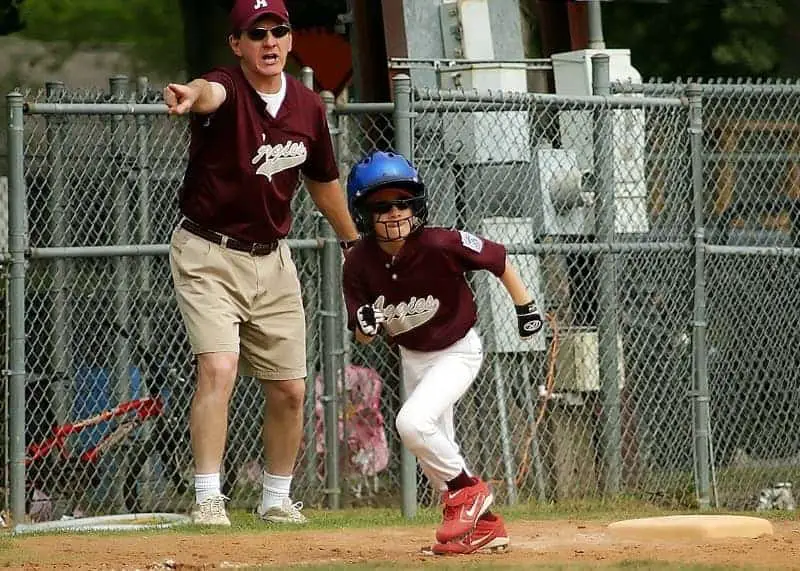
Coaches Alternatives To Yelling
As mentioned, yelling can be beneficial for particular athletes. These coaches label themselves as “old school”, firing up and motivating players. But not every athlete responds well to yelling and screaming. What can coaches do as an alternative when they feel the decibels about to increase?
Use Your Words
Parents tell their kids this all the time. “Use your words.”
Instead of yelling, sulking, walking away or mumbling something under your breath, call a time out, make a substitution or find a way to speak to your player using direct, constructive language they can absorb.
This will also teach your athlete how to talk to you if they have a problem or concern. Don’t instil a “tit for tat” mentality where yelling is an effective way of communication.
The same approach should be used when talking to referees and officials. Be specific with what you are upset about when asking a question to better understand their call. They are likely not going to change their position just because you yelled in their face. Be calm, say your opinion in a controlled manner and be respectful.
Give Them (The Player) A Specific Job
If you know a certain player does one thing particularly well and the game requires their skill set at the time, make it clear this is all you want them to do.
If it’s pitching, sprinting a lane or tackling, make them believe they are the very best person who could possibly do that job right now. Expect the player to perform and they will probably give you more as they are confident and believe in themselves.
Related: Why It’s Essential For Coaches to Have Favorites
Have A “Time Out”
If it’s the player you are frustrated with, consider benching them. If they are “just not getting it” and distracting you from coaching the rest of the team, have a moment of separation until you have calmed down.
Time heals all wounds they say.
Be Mentally Tough
You teach your athletes every practice, whether they are in the youth or professional level, to be mentally strong. You teach them to take criticism, defy expectations and not be wavered by the “uncontrollables” of sports.
You, as the coach, have to learn to be mentally strong yourself and check in with your own feelings.
- Do you need to learn specific breathing techniques or actions for when you feel you’re getting angry?
- Do you need to address some underlying issues festering inside, causing outbursts of anger to your players?
If you need to talk to somebody like a sports psychologist, great. If you need a moment of self-reflection, make time for it.
Learning ways to yell less and communicate effectively more, takes time and practice but it’s a skill that can be learned.
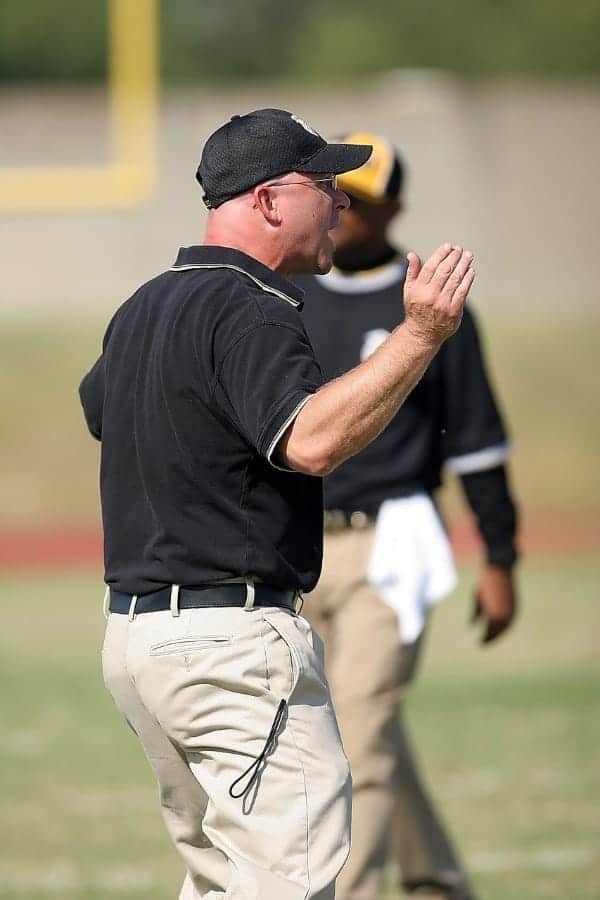
Is Yelling Acceptable For Older Athletes?
Most people don’t like being yelled out. Whether they are 5, 25 or 55 years old. Getting yelled at or spoken to VERY LOUDLY can stop us in our tracks.
While it’s mostly accepted that yelling at a youth sports level should be kept to an absolute minimum unless they are of course being disrespectful and messing around, are the rules different for older athletes? Is yelling at college athletes or even professional players more widely tolerated because they can “take it”?
I recently heard on ESPN that when players sign up for a specific program, such as to Michigan State Basketball, they know what they are “getting into.” They know the coach, their levels of sincerity and the level of play and energy which will be tolerated. But does it make the constant yelling right?
While I’m sure you have your own opinion on this, whether you are “new school or old school”, here is my take.
Every player needs recognition for the things they are doing right. They need to know that the hours upon hours of practice they put in are noted and they are doing a good job, regardless of how many championships they have won and lost or how old they are.
Most players at this elite level know what they did wrong if their actions forced a mistake. They are adults with excellent insight into the game, the rules and the strategies of the team. How much value does yelling add in this situation.
Sometimes it’s not what you say, it’s how you say it!
Yell when absolutely necessary to fire up your team, even I agree with this at times, but if you have personal advice for an athlete, pull them aside and explain your perspective. Don’t humiliate them in front of the entire team.
If you don’t like my advice, look at Karch Kiraly, Greg Popovich or the “Zen Master”, Phil Jackson. (source)
Lastly, know your limits. If your throat is “killing you” after a game, you’re yelling too much.
[VIDEO] – Kobe Bryant shares his insights into Phil Jackson, who he called “Yoda” and how spirituality and mindfulness, not yelling, impacted his game.
Keep Reading:
- What is the Best Sports Video Editing Software & Apps?
- Should There Be Equal Playing Time in Youth Sports?
- Top 10 Tips for Beginner Gymnastics Coaches
Summary: Why Do Coaches Yell? Does It Really Help Motivate Athletes?
Do you think a great coach someone who yells all the time? Do you think this because of what you see on TV from high paid coaches?
Or is a good coach one who sits quickly on the bench, relying on their message in time outs and one on one situations?
Every athlete will be attracted to a certain kind of coach. Some need to be yelled at for motivation, but this same athlete may also have a “limit” on when the yelling is just too much.
“Yelling is actually a very good motivator, but obviously when done too much, can break a player down and demotivate them if you’re on them too hard.
(source)
Know your players, the age group and what fires them up because no two athletes will respond the same.
Are you a yeller? How do your athletes respond?
Cheers,
Emma
